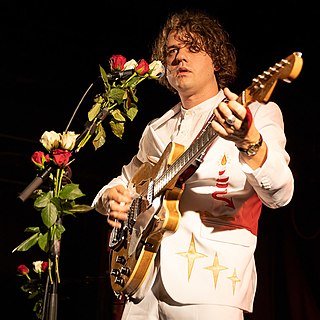A Quote by Steven Pressfield
In the hierarchy, the artist faces outward. Meeting someone new he asks himself, What can this person do for me? How can this person advance my standing? In the hierarchy, the artist looks up and looks down. The one place he can't look is that place he must: within.
Related Quotes
Well, to me, the tensile strength and the very definition of an artist is something that I would place at the top of a vertical hierarchy. To be an artist is to suffer and to lead a life without shelter. It takes a great amount of daring-do, self reinvention, imagination, familial loyalty, sacrifice, economic uncertainty, and the right to be wrong, the right to fail in order to achieve something of noticeable value.
Science, in its ultimate ideal, consists of a set of propositions arranged in a hierarchy, the lowest level of the hierarchy being concerned with particular facts, and the highest with some general law, governing everything in the universe. The various levels in the hierarchy have a two-fold logical connection, travelling one up, one down; the upward connection proceeds by induction, the downward by deduction.
Things appear different from every different plane from which you look at them, and when a person standing on flat earth asks a person standing on top of a mountain, "Do you also believe something?" the person cannot tell much. The questioner must come to the top of the mountain and see. There can be no link of conversation between them until that time.
One of my first observations about New York that I was so fascinated with was that you'd be at a stoplight and you're with everybody; there's a homeless dude and some weird celebrity and a cop and someone who looks exactly like you. You're on foot and everyone is at street level and eye-to-eye. I think that's what's special about New York, because there's no hierarchy, there's no discrimination.
An artist is above all a human being, profoundly human to the core. If the artist can't feel everything that humanity feels, if the artist isn't capable of loving until he forgets himself and sacrifices himself if necessary, if he won't put down his magic brush and head the fight against the oppressor, then he isn't a great artist.
In my work, it's simultaneously realities, instead of parallel. Simultaneous avoids the problem of alternate reality. In parallel reality, there's always a hierarchy, and there doesn't necessarily have to be a hierarchy. When you're in a palace like Blenheim, you're supposed to be in awe - why not be in awe of something different than the stuff they're showing you? It's about finding your own existential place.



































